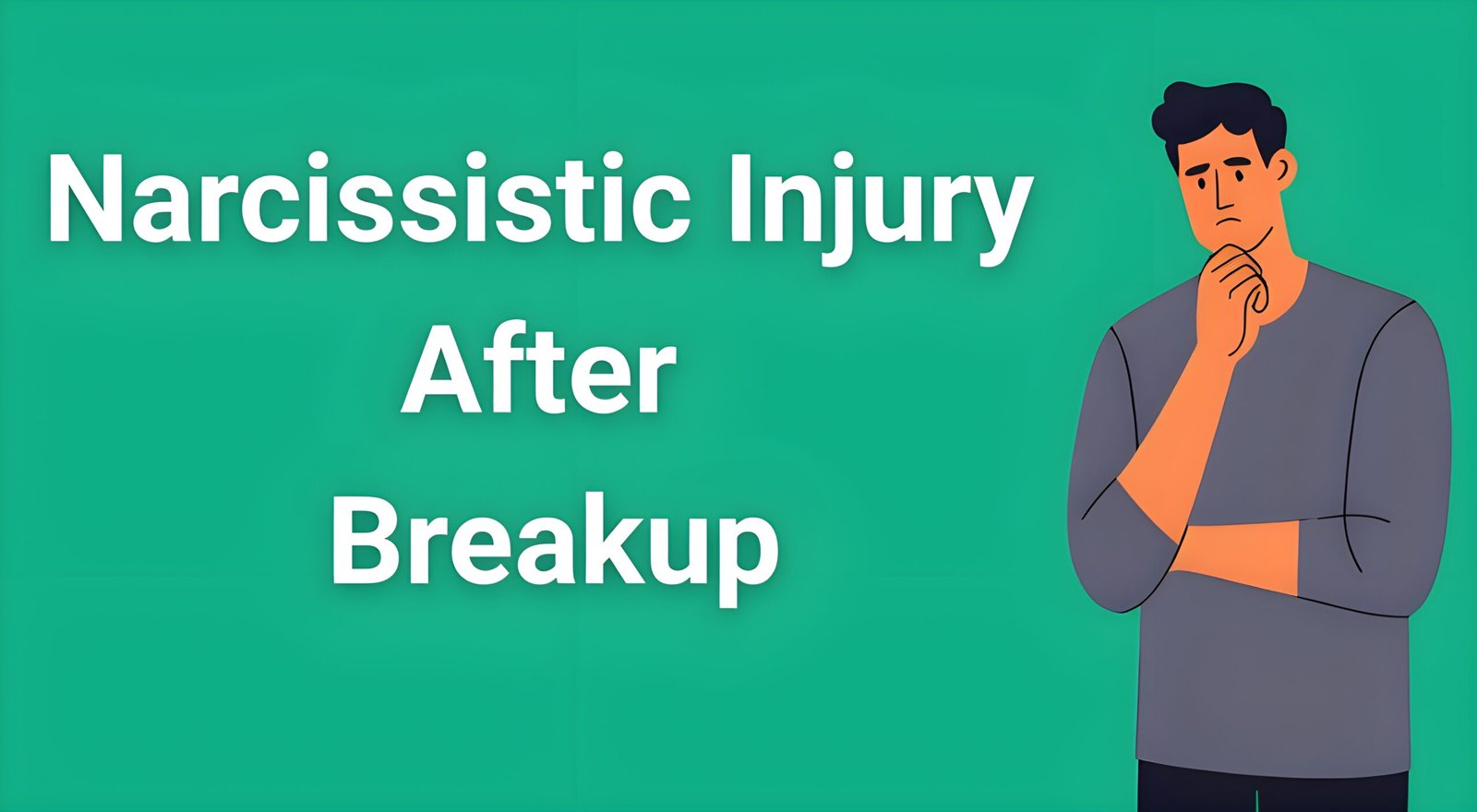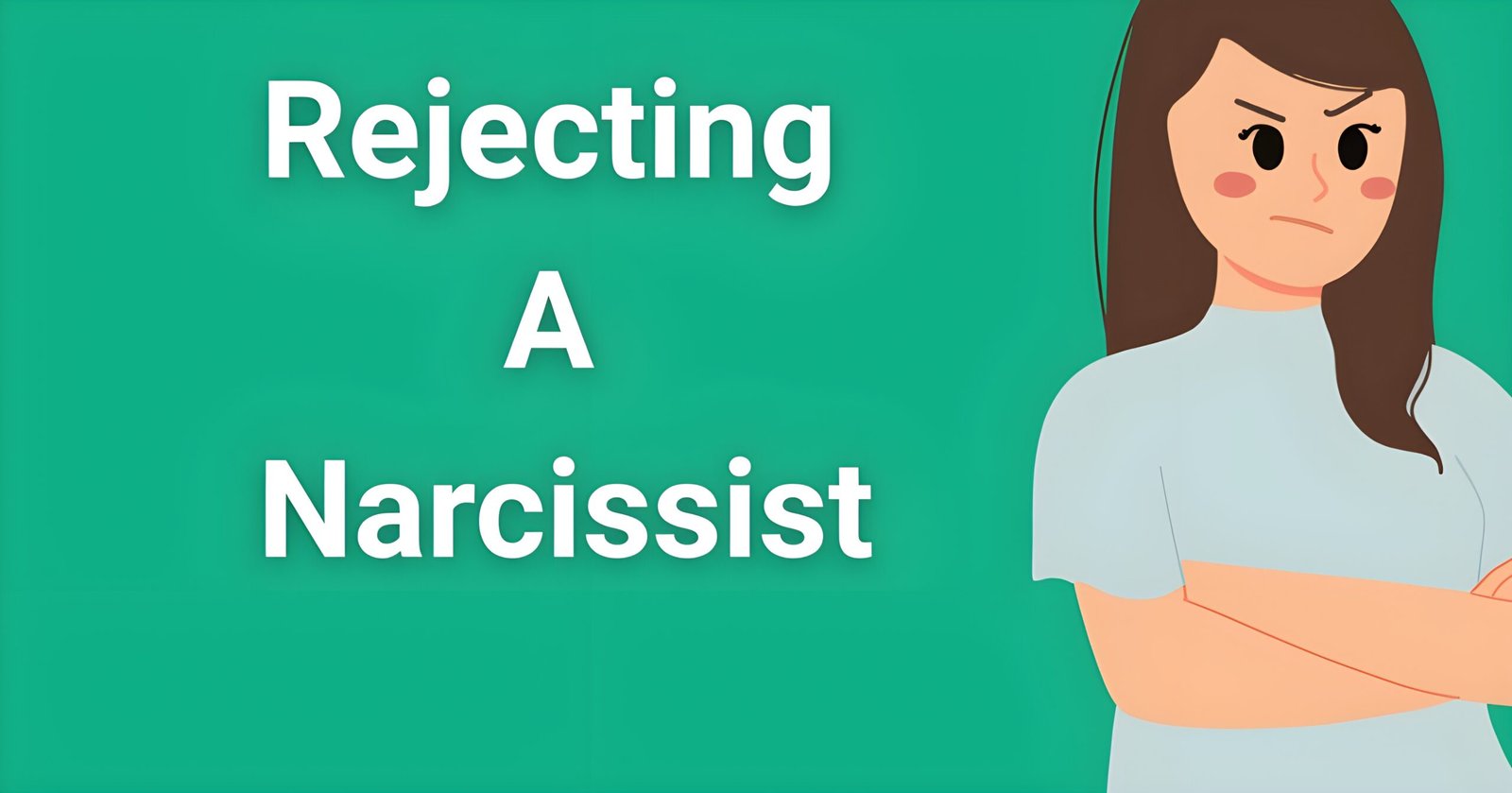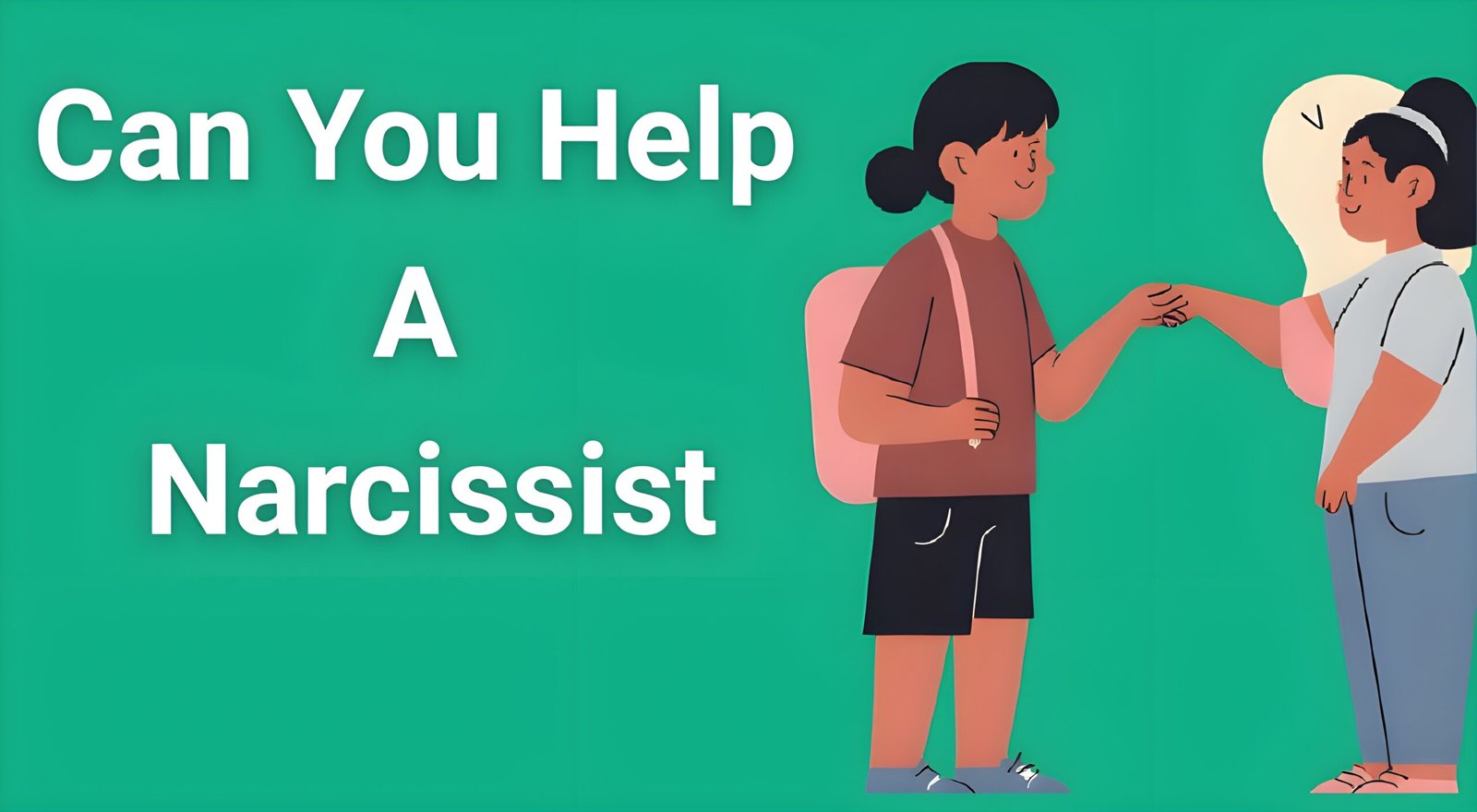Have you ever wondered why your narcissistic ex became so vindictive, cruel, and destructive after your breakup? The answer lies in understanding narcissistic injury after breakup – a psychological phenomenon that explains the explosive, often shocking behavior you witnessed when the relationship ended.
- What Is Narcissistic Injury After Breakup?
- The Devastating Triggers of Narcissistic Injury After Breakup
- How Narcissistic Injury After Breakup Manifests
- The Trauma Bond Connection
- Protecting Yourself During Their Psychological Crisis
- Understanding the Long-Term Impact
- Red Flags of Escalating Narcissistic Injury
- Moving Forward: When They Can’t Let Go
- Breaking Free from the Cycle
- Frequently Asked Questions
- Conclusion
When a narcissist experiences the end of a relationship, they don’t just feel hurt like the rest of us. Instead, they experience what mental health professionals call a “narcissistic injury” – a devastating blow to their inflated sense of self that triggers an emotional meltdown of epic proportions. This narcissistic injury after breakup can transform someone who once claimed to love you into your worst nightmare.
Understanding this phenomenon isn’t just about satisfying your curiosity – it’s about protecting your sanity and accelerating your healing process. The more you understand about narcissistic injury after breakup, the less likely you are to blame yourself for their shocking transformation.
What Is Narcissistic Injury After Breakup?
Narcissistic injury refers to the psychological wound a narcissist experiences when their grandiose self-image is threatened, challenged, or shattered. During a breakup, this injury becomes particularly severe because relationships serve as a primary source of what psychologists call “narcissistic supply” – the constant admiration, attention, and validation that narcissists desperately need to maintain their false sense of superiority.
When a relationship ends, narcissists don’t just lose a partner; they lose their most reliable source of emotional fuel. The resulting narcissistic injury after breakup creates a psychological crisis that most people simply cannot comprehend.
According to the Diagnostic and Statistical Manual of Mental Disorders, individuals with narcissistic traits are extremely vulnerable to injury from criticism or perceived abandonment. The breakup represents the ultimate abandonment and criticism rolled into one devastating package.
The Hidden Reality Behind Their Facade
What makes narcissistic injury after breakup so confusing for survivors is that narcissists rarely show their true emotional state. While you might expect them to appear devastated like any normal person would, they often present a completely different face to the world.
On the surface, they might appear:
- Completely unaffected by the breakup
- Immediately involved with someone new
- Angry and vindictive toward you
- Spreading lies about why the relationship ended
But underneath this carefully constructed facade, the narcissistic injury after breakup has left them feeling humiliated, degraded, and emotionally shattered. Their desperate need to maintain their grandiose self-image prevents them from processing these feelings in healthy ways.
The Devastating Triggers of Narcissistic Injury After Breakup
Understanding what specifically triggers narcissistic injury after breakup can help you recognize patterns and protect yourself from future manipulation attempts. Several key factors contribute to the severity of their psychological wound:
Loss of Control and Power
Narcissists are fundamentally driven by a need to control their environment and the people in it. When you end the relationship or refuse to continue tolerating their abuse, you’re essentially telling them they no longer have power over you. This loss of control represents a direct threat to their core identity and triggers intense narcissistic injury after breakup.
The narcissist’s entire sense of self depends on maintaining dominance in relationships. When that dominance is challenged or removed, their psychological foundation crumbles, leading to the explosive reactions you’ve likely witnessed.
Threat to Their False Self-Image
Narcissists construct elaborate false personas to hide their deep-seated feelings of inadequacy and shame. Your decision to leave the relationship sends a clear message that their charm, manipulation, and false image weren’t enough to keep you. This reality check creates profound narcissistic injury after breakup.
The breakup forces them to confront the possibility that they aren’t as irresistible, perfect, or superior as they believed. This confrontation with reality is absolutely unbearable for someone who has built their entire identity on a foundation of lies.
Fear of Abandonment and Rejection
Despite their outward appearance of confidence and superiority, narcissists harbor deep fears of abandonment that stem from early childhood experiences. When you leave the relationship, you’re activating their most primal fear, creating narcissistic injury after breakup that feels like emotional annihilation.
This fear explains why many narcissists will go to extreme lengths to prevent you from leaving, including love-bombing, threats, manipulation, and even stalking behavior. The abandonment represents not just the loss of supply, but confirmation of their deepest fears about themselves.
How Narcissistic Injury After Breakup Manifests
The ways narcissistic injury after breakup manifests can be shocking, confusing, and deeply traumatic for survivors. Understanding these manifestations can help you recognize that their behavior isn’t about you – it’s about their inability to cope with their psychological wound.
Narcissistic Rage and Vindictive Behavior
One of the most common responses to narcissistic injury after breakup is explosive rage. This isn’t ordinary anger; it’s an uncontrolled, disproportionate response designed to restore their sense of power and superiority. Their rage might include:
- Verbal attacks designed to destroy your self-esteem
- Spreading malicious lies about you to friends, family, or coworkers
- Threatening behavior or actual stalking
- Attempts to sabotage your career, relationships, or reputation
- Legal harassment through frivolous lawsuits or false accusations
This rage serves multiple purposes: it helps them feel powerful again, punishes you for “causing” their injury, and creates a narrative where they’re the victim instead of the abuser.
Smear Campaigns and Character Assassination
Narcissists cannot tolerate the idea that they might be viewed as anything less than perfect. The narcissistic injury after breakup threatens to expose their true nature, so they launch preemptive strikes against your reputation. These smear campaigns serve to:
- Control the narrative about why the relationship ended
- Prevent others from believing your account of the abuse
- Maintain their image as the “good guy” in the situation
- Isolate you from potential sources of support
The lies they spread during these campaigns can be absolutely breathtaking in their creativity and cruelty. Remember, they’re not trying to tell the truth – they’re trying to protect their wounded ego at any cost.
Hoovering and Manipulation Attempts
Not all responses to narcissistic injury after breakup involve rage and vindictiveness. Sometimes, narcissists will attempt to “hoover” you back into the relationship through manipulation tactics designed to restore their supply source. These attempts might include:
- Love-bombing with promises that they’ve changed
- Fake emergencies designed to elicit your sympathy
- Using children or mutual friends as intermediaries
- Alternating between cruelty and kindness to keep you emotionally off-balance
These hoovering attempts aren’t about love or genuine desire for reconciliation. They’re desperate attempts to heal their narcissistic injury after breakup by regaining control over their lost supply source.
The Trauma Bond Connection
One crucial aspect of understanding narcissistic injury after breakup involves recognizing how trauma bonds complicate the healing process for survivors. While the narcissist is dealing with their psychological wound, you’re likely struggling with the neurological addiction created by the cycle of abuse.
Trauma bonds form when intermittent reinforcement – periods of cruelty followed by kindness – creates powerful neurological pathways that make leaving feel impossible. These bonds explain why you might find yourself:
- Obsessively checking their social media
- Feeling physically ill when trying to maintain no contact
- Making excuses for their post-breakup behavior
- Hoping they’ll realize their mistake and come back
Understanding that trauma bonds function like actual addiction helps explain why healing from narcissistic relationships takes so much longer than healing from normal breakups. Your brain literally believes you need this person to survive, making their post-breakup cruelty even more devastating.
For those struggling with these intense attachments, specialized approaches that address the neurological aspects of trauma bonding can provide faster, more effective relief than traditional therapy alone. Breaking free from trauma bonds requires specific techniques that rewire the brain’s response to the narcissist.
Protecting Yourself During Their Psychological Crisis
Understanding narcissistic injury after breakup is only the first step – you also need practical strategies to protect yourself while they’re in crisis mode. Their psychological wound makes them more dangerous, not less, so your safety must be the top priority.
Implement Absolute No Contact
The most effective way to protect yourself from the fallout of narcissistic injury after breakup is to cut off all communication channels. This means:
- Blocking them on all social media platforms
- Changing your phone number if necessary
- Using a third party for any required communication about children or legal matters
- Avoiding places where you’re likely to encounter them
No contact serves two purposes: it protects you from their manipulation attempts and prevents you from accidentally triggering additional narcissistic injuries that could escalate their behavior.
Document Everything
During the chaos following narcissistic injury after breakup, it’s crucial to document any threatening, harassing, or abusive behavior. This documentation might be necessary for:
- Obtaining restraining orders or protection orders
- Legal proceedings related to divorce or child custody
- Workplace harassment complaints
- Criminal charges for stalking or threats
Save text messages, emails, voicemails, and any other evidence of their post-breakup behavior. Even seemingly minor incidents can establish patterns that become important later.
Build Your Support Network
The isolation tactics narcissists use during relationships often leave survivors without strong support systems just when they need them most. The period following narcissistic injury after breakup is when you need support the most, so prioritize rebuilding these connections.
Professional support from therapists who understand narcissistic abuse can be particularly valuable during this time. They can help you process the trauma while developing strategies for dealing with ongoing harassment or manipulation attempts.
Understanding the Long-Term Impact
The effects of narcissistic injury after breakup don’t disappear quickly for either party. Understanding the long-term trajectory can help you prepare for what’s ahead and make informed decisions about your healing journey.
The Narcissist’s Recovery Timeline
Unlike healthy individuals who process breakup grief and eventually move forward, narcissists struggle to heal from their psychological wound. Their emotional immaturity and lack of genuine self-reflection means that narcissistic injury after breakup can persist for months or even years.
This extended recovery period explains why some survivors experience harassment, stalking, or manipulation attempts long after they assumed the narcissist had “moved on.” Their new relationships often serve as band-aids rather than genuine healing, leaving the original wound festering beneath the surface.
Your Healing Journey
While the narcissist remains stuck in their psychological crisis, your healing journey can progress much more successfully with the right support and understanding. However, it’s important to recognize that recovering from narcissistic abuse involves more than just getting over a normal breakup.
The trauma bonding, gaslighting, and emotional abuse create complex psychological wounds that require specialized healing approaches. Many survivors find that traditional relationship advice or general therapy approaches fall short of addressing the unique challenges they face.
Professional guidance that specifically addresses narcissistic abuse can significantly accelerate your recovery process. This specialized approach recognizes that you’re not just healing from a breakup – you’re recovering from systematic psychological abuse that affected your ability to trust your own perceptions and judgments.
Red Flags of Escalating Narcissistic Injury
While all narcissists will experience some level of injury after a breakup, certain red flags indicate when their psychological wound is escalating to dangerous levels. Recognizing these warning signs can help you take additional safety precautions:
Obsessive Monitoring and Stalking
When narcissistic injury after breakup intensifies, many narcissists become obsessed with monitoring their ex-partner’s activities. This obsession might manifest as:
- Driving by your home or workplace repeatedly
- Creating fake social media accounts to monitor your online activity
- Questioning mutual friends about your activities
- Showing up unexpectedly at places you frequent
- Using technology to track your movements or communications
This escalation from simple harassment to stalking behavior indicates that their psychological wound has created a dangerous obsession that requires immediate intervention from law enforcement.
Threats and Intimidation Tactics
As narcissistic injury after breakup deepens, many narcissists resort to threats as a way to regain the control and power they’ve lost. These threats might include:
- Direct threats of physical violence against you or your loved ones
- Threats to harm themselves if you don’t resume contact
- Threats to destroy your reputation, career, or relationships
- Threats involving your children or custody arrangements
Any threat should be taken seriously and reported to appropriate authorities. The narcissist’s wounded psychological state makes them more likely to follow through on threats than they would be under normal circumstances.
Weaponizing Others Against You
When direct approaches fail to heal their narcissistic injury after breakup, many narcissists will recruit others to continue their campaign of psychological warfare. This might involve:
- Convincing family members or friends that you’re unstable or abusive
- Using children as weapons in custody battles or emotional manipulation
- Recruiting new partners to participate in harassment campaigns
- Involving employers or professional contacts in their smear campaigns
This escalation indicates that their psychological wound has driven them to view you as an enemy who must be destroyed rather than simply a lost source of supply.
Moving Forward: When They Can’t Let Go
Understanding narcissistic injury after breakup helps explain why some narcissists seem incapable of moving forward in healthy ways. Their psychological wound creates a permanent grudge that can last for years, making complete healing impossible while they remain focused on revenge or reconquest.
This reality can be devastating for survivors who hope that time will eventually lead to peace and normalcy. The truth is that some narcissists never fully recover from the injury of being left or rejected, particularly when that rejection threatens their core identity.
The Importance of Your Own Recovery
While you can’t control how long their narcissistic injury after breakup affects their behavior, you have complete control over your own healing journey. The sooner you accept that their recovery isn’t your responsibility, the faster you can focus on rebuilding your life.
Your recovery doesn’t depend on their psychological state, their willingness to leave you alone, or their eventual acceptance of the breakup. It depends on your commitment to healing the trauma bonds, rebuilding your sense of self, and creating a life that protects you from future narcissistic relationships.
Many survivors find that specialized resources specifically designed for narcissistic abuse recovery provide faster, more effective results than general relationship counseling. These approaches recognize that you’re dealing with the aftermath of psychological warfare, not just a difficult breakup.
For those still feeling trapped in situations where leaving isn’t immediately possible, understanding the dynamics of narcissistic injury can provide valuable insights for managing day-to-day survival while planning your eventual escape. The key is recognizing that their behavior isn’t really about you – it’s about their inability to cope with their own psychological wounds.
Breaking Free from the Cycle
The devastating impact of narcissistic injury after breakup often leaves survivors questioning everything they thought they knew about love, relationships, and their own judgment. However, this crisis also presents an opportunity for profound healing and growth that wouldn’t have been possible while trapped in the relationship.
Understanding Your Worth Beyond Their Wounds
One of the most important realizations for survivors is that the severity of narcissistic injury after breakup isn’t a measure of how much the narcissist loved you. Their extreme reactions aren’t proof of deep feelings – they’re proof of deep psychological disturbance and emotional immaturity.
Healthy people don’t launch vindictive campaigns against former partners, regardless of how hurt they feel. The fact that they’re willing to destroy your reputation, threaten your safety, or traumatize your children reveals the truth about their character, not the depth of their love.
Your worth as a human being isn’t determined by how well you managed their emotions or how successfully you avoided triggering their rage. You deserve relationships built on mutual respect, genuine care, and emotional maturity – qualities that narcissists simply cannot provide.
Creating a Future Free from Narcissistic Relationships
Perhaps the most valuable outcome of understanding narcissistic injury after breakup is developing the knowledge and skills needed to avoid similar relationships in the future. The patterns of behavior you’ve witnessed provide a roadmap for identifying potential narcissists before they can establish psychological control.
Red flags that once seemed like passionate love – the intense attention, rapid commitment, and overwhelming focus on you – now reveal themselves as warning signs of someone seeking supply rather than genuine partnership. This hard-won wisdom becomes your protection against future manipulation and abuse.
The healing journey isn’t just about recovering from this relationship; it’s about building the self-awareness, boundaries, and inner strength needed to create genuinely healthy relationships moving forward. This transformation often requires addressing the underlying vulnerabilities that made you susceptible to narcissistic targeting in the first place.
Frequently Asked Questions
Q: How long does narcissistic injury after breakup typically last?
A: Unlike normal breakup grief, narcissistic injury can persist for months or even years because narcissists lack the emotional maturity to process rejection in healthy ways. Some never fully recover from the wound to their ego.
Q: Can therapy help a narcissist heal from their injury after breakup?
A: While therapy can potentially help, most narcissists are unlikely to seek genuine treatment because doing so would require acknowledging their flaws. They typically blame their ex-partner rather than examining their own behavior.
Q: Is it normal to feel guilty about causing narcissistic injury after breakup?
A: Many survivors experience guilt, but it’s important to remember that you’re not responsible for managing another adult’s emotions. Leaving an abusive relationship is an act of self-preservation, not cruelty.
Q: Should I try to help my narcissistic ex heal from their injury?
A: Absolutely not. Attempting to help them heal often reignites their hope of getting you back, which can escalate their harassment and manipulation attempts. Focus on your own healing instead.
Q: Can narcissistic injury after breakup lead to violence?
A: Yes, the psychological wound can make narcissists more dangerous than usual. If you experience threats, stalking, or escalating behavior, contact law enforcement immediately and consider obtaining a restraining order.
Q: Why do they seem fine on social media after causing such chaos?
A: Narcissists are skilled at maintaining their public facade even while privately struggling with their injury. Their social media presence is carefully curated to make you believe they’ve moved on effortlessly.
Conclusion
Understanding narcissistic injury after breakup provides crucial insight into the psychological chaos that erupts when these relationships end. The shocking transformation from loving partner to vindictive enemy isn’t about you – it’s about their inability to cope with the devastating blow to their false sense of self.
This knowledge becomes your shield against their manipulation attempts and your pathway to genuine healing. While they remain trapped in their psychological wound, unable to process rejection in healthy ways, you have the opportunity to break free from the cycle of abuse and build a life based on authentic self-worth and genuine connections.
The journey forward isn’t always easy, but it’s infinitely better than remaining trapped in a relationship with someone whose love was really just disguised need for control and validation. Your freedom from their psychological prison is worth every challenge you’ll face in the healing process.
Remember: their narcissistic injury after breakup reveals their true character, not your worth as a human being. You deserve relationships built on mutual respect, genuine care, and emotional maturity – qualities that exist in healthy people who would never weaponize their pain against someone they once claimed to love.






